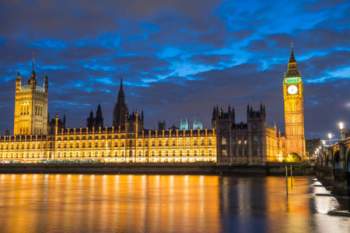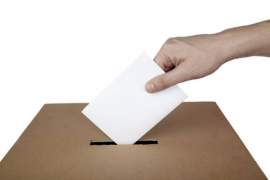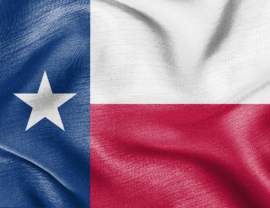
Tea Act

Facts about the Tea Act of 1773
The Tea Act of 1773 was an Act which was executed by the Parliament of Great Britain in 1773. The principal overt objective of the Act was to decrease the absurd surplus of tea that was held by the British East India Company, who was in heavy financial trouble, in its London warehouses. A second related objective of the Tea Act of 1773 was to weaken the cost of tea that was secretly smuggled into the North American colonies, which were under the rule of Great Britain.
The purpose of the Tea Act of 1773 was to help convince the colonists to buy British East India Company tea where the Townshend duties were paid from, therefor indirectly agreeing to give Parliament the right of taxation in the American colonies. The Tea Act granted the British East India Company the right to ship its tea directly to the North America colonies as well as the right to export tea from Great Britain duty-free, despite the fact that the tax placed on the colonists by the Townshend Acts which was collected from colonies remained in action. The Tea Act received royal assent on May 10, 1773.
Colonists in the North American colonies recognized the legal implications of the Tea Act of 1773’s provisions. Because of this, a coalition of artisans and merchants similar to those which had gone against the Stamp Act of 1765 mobilized in order to oppose the distribution and delivery of the tea by the British East India Company. The authorized consignees of the company were subject to harassment, resulting in many of the colonies being successful at preventing the British East India Company tea from being landed in North America.
The best example of this success was in Boston, where this resistance resulted in the famous Boston Tea Party. In December 16, 1773, many colonists, some who disguised themselves as Native Americans, boarded the tea ships which were anchored in the harbor and dumped all of the tea cargo found on the ships overboard into the water. Great Britain’s Parliament responded to this rebellion by passing many acts, including the Coercive Acts, which were designed to punish the colony of Massachusetts for its resistance to Great Britain, as well as appointing General Thomas Gage as the Massachusetts royal governor. These actions by the British government raised tensions even more which eventually broke out and became a driving force in the War of America’s Independence in April 1775.
Great Britain’s Parliament later passed the 1778 Act of the Taxation of Colonies. This act repealed many of the taxes, including the tax placed on tea in the Tea Act of 1773 as one of many different conciliatory propositions presented by the Carlisle Peace Commission to the Second Continental Congress. The proposals by the Carlisle Peace Commission were rejected by the Congress. The Tea Act of 1773 stopped being enforced and effectively became a part of the "dead letter" legislature, but it was not officially removed from the legislative books until after the passage of the Statute Law Revision Act in 1861.
The tea act contained three major provisions:
The East India Company became eligible to have a license granted to export their tea to the North America colonies.
The East India Company was no longer required go through auctions in London to sell its tea.
Duties charged in Britain on the tea that was destined to go to North American colonies or other foreign areas would be either refunded during the export or not imposed at all.
Consignees that received the East India Company's tea had to pay a deposit after receiving the Company’s tea
During the drafting of the Tea Act of 1773, there were proposals made stating that the Townshend tax should be waived as well, but Lord Frederick North opposed the idea, stating that the revenues coming from the tax were being used to pay the salaries of crown officials who were residing in the colonies.
Background of the Tea Act
In the 1760s through the early 1770s, the East India Tea Company had been required by law to sell its product exclusively in London. Here the company would pay a duty averaging approximately two shillings and six pence for every pound of tea. The tea would then be destined to arrive at North America where the merchants of the colonies who were involved in the tea trade would then purchase the tea and have it transported it throughout North America for its eventual retail sale to colonists. Because of the markups as well as the tea tax from the 1767 Townshend Acts that were imposed on the merchants, it created a very profitable opportunity for those American merchants to refrain from purchasing the tea and instead importing and distributing tea that was purchased from the Dutch through shipments and transactions that broke the laws of the Navigation Acts and thus were considered smuggled goods according to British Authorities.
Tea smugglers important approximately 900,000 pounds of tea annually that was cheap and foreign. However, the smuggled tea had a noticeable difference in taste and quality in comparison to that of the East India Company’s tea. The Americans purchased approximately 562,000 pounds of this tea annually. While the tea from the East India Company was more desirable in taste, many Patriots encouraged colonists to consume the smuggled tea as a way to politically protest against the Townshend Taxes.
In 1770, the majority of the Townshend taxes were fully repealed, but the one placed on the East India Company’s tea remained. The colonists tried to resist this this tax in many ways, such as creating pressure to avoid purchasing legally imported tea, which lead to an overall drop in North American colonial demand for the East India Company's tea, along with a mushrooming surplus of the Company’s tea in the English warehouses.
By 1774, the East India Company was very close to collapsing partially due in the contractual payments of 400,000 pounds that the Company had to the British government of annually in conjunction with the famine and war in India and the overall weak economy in the European markets. Many people, including Benjamin Franklin, felt that things in the colonies would be significantly improved if the East India Company had the right to export their tea directly to the North American colonies without having to pay the taxes that were currently being paid to London.
The administration of Lord Frederick North saw this to be an opportunity to achieve many goals with the use of a single bill. If the East India Company were allowed to ship tea directly to the North American colonies, it would remove many of the markups of the parties involved from the overall cost of its tea.
By eliminating or reducing the duties paid by the East India Company from the tea being landed in Britain and having it send to the colonies immediately, it would reduce the total cost of tea even more in the North American colonies, making the prices of smuggled tea look less attractive. The American colonists would be much more willing to pay for cheaper East India Company tea, while the Townshend tax would still be collected, legitimizing Great Britain’s Parliament’s right to tax the North American colonies.
Colonist’s Response to the Tea Act
Many North American colonists opposed the Tea Act of 1773, not specifically because it worked to benefit the East India Company, but because the act seemed to validate the Townshend tax and Great Britain’s right to tax the colonies. The middlemen merchants who worked to legally import the tea could potentially lose their business as well as those who were involved in the illegal Dutch trade, since they would be undercut by the East India Company's reduced prices. Together, these interests combined and became the driving forces against the Tea Act.
Examples of the colonist’s opposition could be seen in Philadelphia and New York, where the tea was delivered back to Britain. In Charleston, the tea was left on the docks by the colonists to rot. The most dramatic example was in Boston, where vigilant colonists did not allow the tea to be landed in the docks and on December 16, 1773, the tea was thrown over into the harbor, an act now remembered as the Boston Tea Party.
Consequences of the Tea Act
The Boston Tea Party was very shocking to all British political opinion makers. The event unified all British parties against the North American radicals. Great Britain’s Parliament created the Boston Port Act, closing Boston Harbor until the tea that was dumped was paid for. This act was the first of the “Intolerable Acts” which were passed by Great Britain’s Parliament. Many of the harsh measures caused colonists to unify even more while aggravating their frustrations further against Britain.
Ultimately, the 1788 Taxation of Colonies Act repealed the Tea Tax of 1773 and others acts that had been placed on the North American colonies, but it was not enough to end the on-going struggles. The Act became a "dead letter” and was only formally removed from the legislative texts in 1861.



















